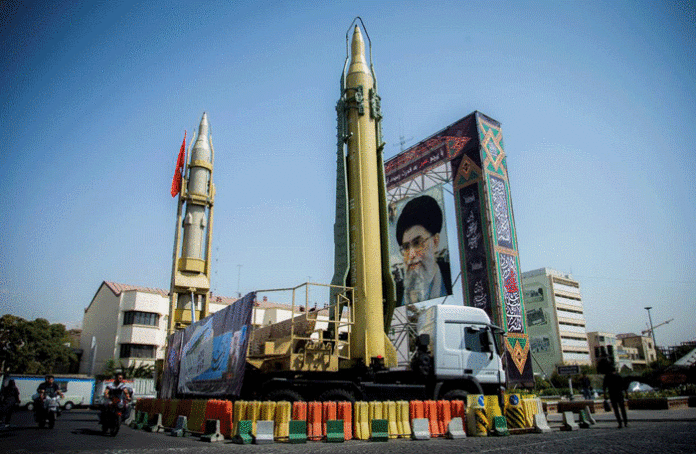There’s probably no great rush among Iranian science majors to choose careers in the country’s nuclear research program. For good reason. The positions—and their holders—have often proven short-lived.
Over the past decade, at least five major Iranian nuclear scientists were assassinated, the most recent one, Mohsen Fakhrizadeh —thought to be the mastermind behind Iran’s nuclear program—just last month.
Whether Mr. Fakhrizadeh was killed by a hidden, elite sharpshooter squad or, as Iranian security officials have said, remotely, by satellite-controlled gunnery equipped with facial recognition software, the killing was clearly sophisticated, well planned and well executed.
Which, of course, made Israel a prime suspect. The motive was certainly there.
JCPOA, the “Joint Comprehensive Plan of Action” a.k.a.“the Iran Deal,” itself lies gravely wounded—the US pulled out of it in 2018, and Iran has subsequently violated some of the agreement’s major restrictions, including the amount of enriched uranium it is allowed to stockpile and the purity to which it is allowed to enrich the element.
And so, Israel, the “little satan” Iranian leaders have repeatedly threatened, would understandably like to see Iran’s nuclear development program, well… set back. Fewer nuclear experts means fewer capabilities to create nuclear weapons.
But whoever was ultimately behind the scientists’ untimely ends, the labor-intensive setting up and execution of the projects “on the ground” was overwhelmingly likely to have been the work of Iranians.
Could they be mercenaries hired by a power like Israel or the US, or Iranians sympathetic to Israel? Anything is possible. But it’s also possible that the people who made the hits happen are operatives of one of two Iranian anti-government groups.
Those of us who qualify for senior citizen discounts on buses and trains likely remember when—yes, youngsters, it is fact—Iran and Israel were close allies. Iranian-Israeli military links existed, weapons projects were undertaken in tandem and El Al operated direct flights between Tel Aviv and Tehran.
That was back in the days of the Shah, Mohammad Reza Pahlavi, who ruled Iran from 1941 until 1979, when the Iranian Revolution brought Islamist Ayatollah Ruhollah Khomeini back from exile and the mullahcracy began.
The Shah fled to Egypt, where he died the next year. At the time, his son and heir to the throne (had the throne persisted), Reza Pahlavi, was a trainee fighter pilot in Texas. Today, 60 years old and living in Maryland, he still aspires to return to Iran —and to return Iran to its happier past.
Reza Pahlavi leads a body called the National Council of Iran for Free Elections, an umbrella group of exiled opposition figures seeking to overthrow Iran’s current government. The would-be Iranian leader claims to have clandestine supporters within the Iranian military, including the Revolutionary Guard.
Similarly seeking to replace the mullahs is the National Council of Resistance of Iran, which aims to establish a pluralistic, multi-party and democratic system in Iran.
Sympathizers in Iran of either of those groups could have been the actual assassins of the late Iranian nuclear scientists. What is undeniable, though, is that Iranian resistance movements exist. And one or more of them may be working together with… whatever outside power is trying to keep Iran from joining the international nuclear weapons club.
That fact should give pause to President-elect Biden, who has expressed his desire for the US to rejoin the Iran Deal. To be sure, there are rational reasons to try to do that, especially if the restrictions on Iran are tightened, something Mr. Biden has pledged to pursue.
But there’s no hurry. The US sanctions currently in place continue to take a devastating toll on Iran’s economy; the country’s inflation rate is currently running around 40 percent. And the brazen assassinations—along with the 2018 Israeli operation that “borrowed” important documents outlining Iran’s nuclear designs, and a series of explosions over recent months that have destroyed a centrifuge factory, a secretive military installation and a missile facility—have surely made Iran’s leaders keenly aware that their country is rather vulnerable to formidable adversaries.
So, the incoming Biden administration would be wisest to let the pressure on Iran continue to build: to enforce the sanctions in place, to encourage the Iranian movements seeking to overthrow the Islamic Republic of Iran, and to continue to strengthen whatever entity it suspects has been undermining Iran’s nuclear ambitions.
The Deal Can Wait // Pressure on Iran is good for the world
To read more, subscribe to Ami





















